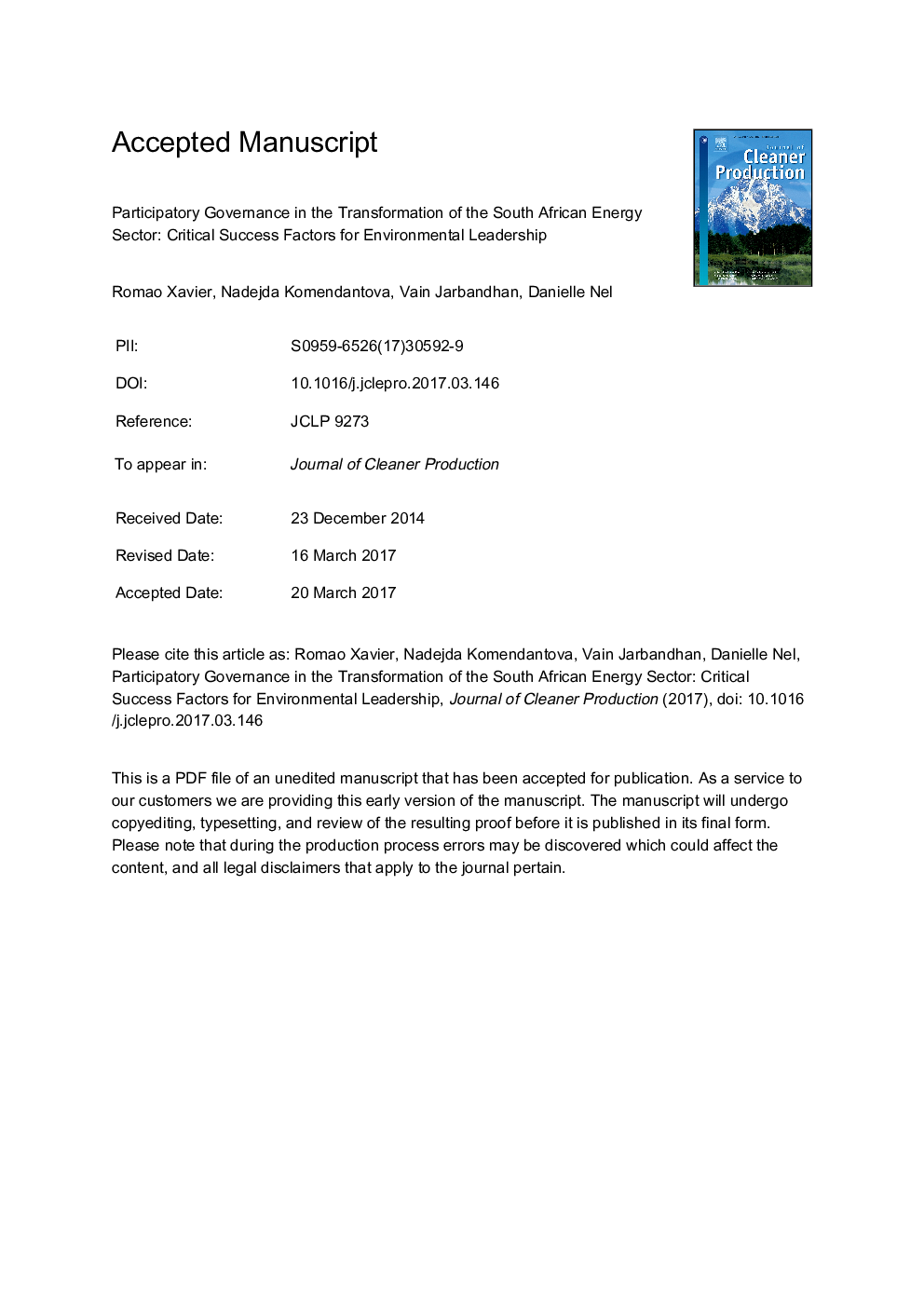| Article ID | Journal | Published Year | Pages | File Type |
|---|---|---|---|---|
| 5479769 | Journal of Cleaner Production | 2017 | 44 Pages |
Abstract
Socio-economic development and economic growth is connected with the intensive use of energy resources, which poses also risks to long-term viability of the biosphere by causing natural resource depletion and environmental degradation. One of the options to reduce Human and environmental risks from extensive energy generation are renewable energy sources. However, there are several barriers for transformation of energy sector towards a greater share of renewable energies. Human factors such as social support or opposition are crucial drivers for this transition. This paper examines the state of infrastructure projects in South Africa and assesses how lessons from these projects can contribute to improve development of energy transformation in the country. It analyses the challenges of applying participatory governance in the energy transition in South Africa, as a critical component of successful infrastructure project implementation, and of insights into fostering environmental leadership. The paper is based on the case studies analysis of ten large infrastructure projects in South Africa and focuses on public participation in these projects, its effects and challenges by applying the ladder of public participation methodology. Findings from the study support the scientific arguments that public participation in decision-making regarding deployment infrastructure projects creates an enabling environment for successful implementation. In conclusion public participation was only in the context of environmental impact assessment which is a mandatory requirement for infrastructure projects in South Africa. Currently public participation is manly regarded as a reactive measure to conflict resolution. It is organized to provide feedback on the results of environmental impact assessment, mainly as a way to address conflict, which has already emerged. Our results show that provision of information and consultation are the two most frequent levels of public participation. Land use issues and questions about benefits and impacts from infrastructure projects on local communities are the most frequent concerns.
Related Topics
Physical Sciences and Engineering
Energy
Renewable Energy, Sustainability and the Environment
Authors
Romao Xavier, Nadejda Komendantova, Vain Jarbandhan, Danielle Nel,
